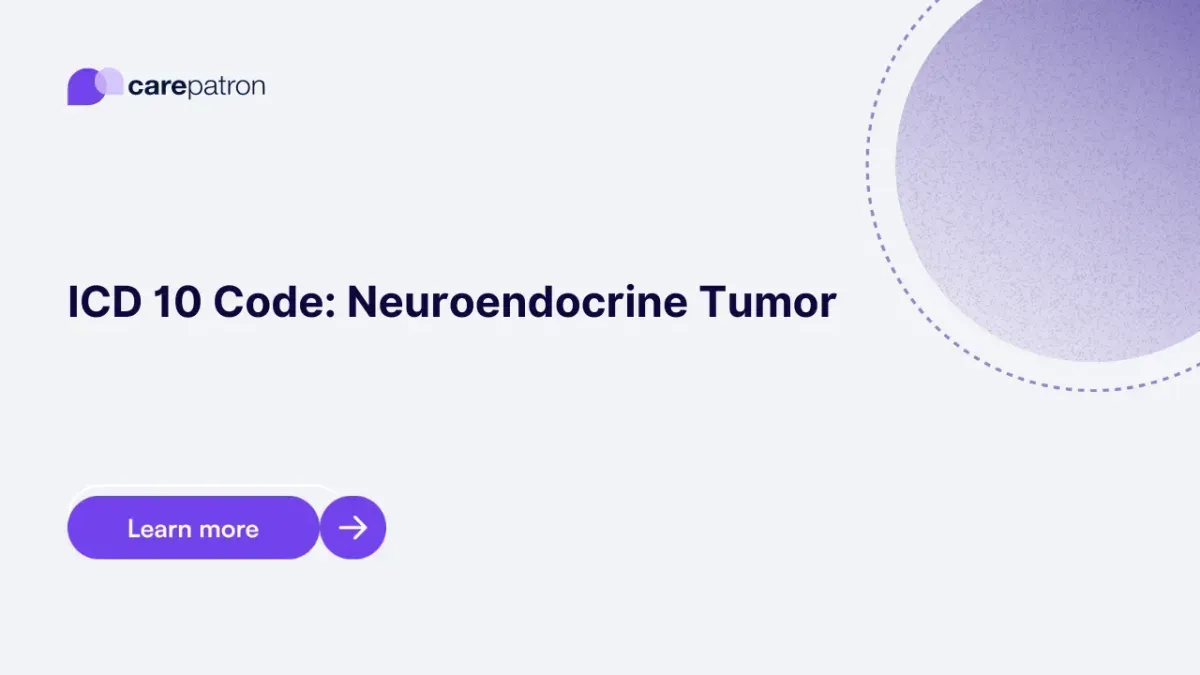
Neuroendocrine Tumor ICD-10-CM Codes | 2025
Learn about some of the common ICD-10 codes for neuroendocrine tumor diagnoses you can use through this guide.
Use Code
Commonly asked questions
Use a neuroendocrine tumor ICD code when documenting and coding a patient's diagnosis with a neuroendocrine tumor. These codes are essential for accurate medical recordkeeping.
All the aforementioned ones are, yes.
Common treatments for Neuroendocrine Tumor Diagnosis Codes include surgical resection, somatostatin analogs, chemotherapy, and targeted therapies. Treatment plans are individualized based on the tumor's characteristics.
EHR and practice management software
Get started for free
*No credit card required
Free
$0/usd
Unlimited clients
Telehealth
1GB of storage
Client portal text
Automated billing and online payments
